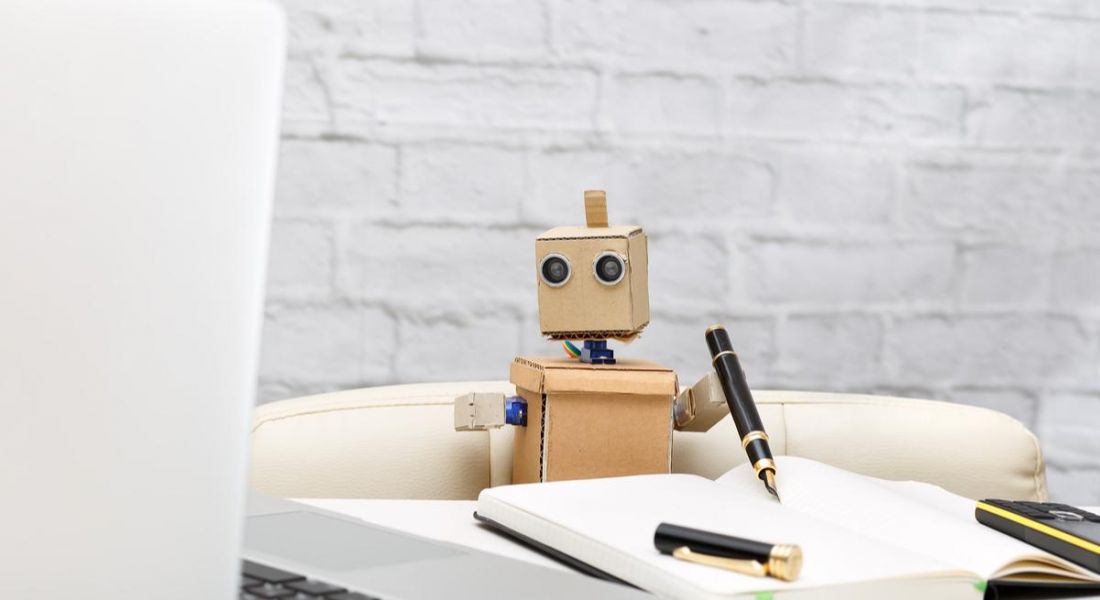What will happen to jobs as we know them when automation comes to the fore?
Advances in technology have long been a source of fear for workers of the world, from the steam engine to the 19th century to Luddites that destroyed machinery in English cotton mills.
These disruptive innovations sparked concerns from people who were worried that their jobs would cease to exist immediately after these new discoveries were implemented in industry.
The looming spectre of automation
In this digital era, the target in question is automation and the effect it may have on the global jobs market. Increasingly powerful computers, the penetration of the internet in our daily lives, artificial intelligence (AI) and internet of things (IoT) devices are all pointing to automation being the next key factor that will transform the working world.
So, will it be disastrous, creating mass unemployment, further driving social and economic inequality, and erasing entire industries? Or, will it herald a new utopia with less drudgery and grunt work across everything from admin to healthcare? The truth lies somewhere in the middle.
Looking to the future
According to PwC’s recent Workforce of the Future report, the AI trajectory comprises three levels.
The first is where we are today, with assisted intelligence automating repetitive, standardised tasks. The second is emerging as augmented intelligence, which is human-machine collaboration in decision-making processes. The future, and the area that concerns the public the most, will be autonomous intelligence. Adaptive continuous intelligent systems will take over decision-making, putting the very concept of humans doing some jobs into question.
PwC’s Bot.Me report issued in 2017 shows that automation is going to play a major part in companies transforming their current practices. Indeed, 72pc of those surveyed believe AI will be the key advantage in the future of business – there’s no getting away from it.
‘I think you’re just going to see people to be in new jobs that none of us have considered yet. It’s less about the jobs to my mind than it is about the bundle of skills’
– GERARD MCDONOUGH
Reducing grunt work
Gerard McDonough, director of people and organisation at PwC Ireland, said: “If you think about it, in a data-driven consumer world, you’re going to want to move the AI and the RPA [robotic process automation] in to take over some of the tasks that can alleviate the talent you have, allowing them to get more involved in value-add work.”
The Bot.Me report also found that 70pc of business leaders agree that AI has the potential to enable humans to concentrate on more meaningful work as well as enjoy more leisure activity.
McDonough maintains that AI and automation will have a positive effect on the workplace but the secret is in how employers talk about implementing these technologies with teams. “It’s got to be about how organisations communicate with their workforce, so they can come comfortably up to speed with what the new world of work is like, and that they share that openly with them.” A cloak-and-dagger approach to automation from employers won’t go down well.
Will there be enough jobs?
Many people are worried that there won’t be enough jobs in talent-short areas, such as cybersecurity and software development, to truly offset job losses caused by automation. According to McDonough, not enough attention is being paid to the job creation prospects a thriving digital economy will unveil.
Static job roles may become a thing of the past, with an adaptable workforce and employers that increasingly value flexibility. The jobs we have now may well not exist in future but it’s not as though they won’t be replaced with anything else.
McDonough explained how the changes will likely play out: “Will we still be hiring graduate accountants in 10 years time? Yes. Will it still be the same volume? No. Will that be assisted by robots that are able to audit a set of accounts or look through an inventory of numbers? Absolutely.”
It’s not a question of offsetting so much as adapting, he explained. “I think you’re just going to see people to be in new jobs that none of us have considered yet. It’s less about the jobs to my mind than it is about the bundle of skills.”
Multiskilled workers in the future will be ready as AI, robotics, geopolitical risk and other megatrends develop and change.
Adaptation, adaptation, adaptation
According to the OECD report on Automation and Independent Work in a Digital Economy, there will continue to be a high premium placed on having the cognitive skills to solve non-standard problems. The OECD took a task-based approach in its report, analysing the content of the individual jobs a worker carries out in a day rather than the average task content in each occupation or field.
‘The places (and sectors) where new jobs are created may not be the same as where the old ones are lost. Certain occupations will decline while others grow’
– JAMES MANYIKA
This resulted in far less alarming job-loss prediction statistics related to automation and AI than many expected. For the foreseeable future, retooling and adaptation of work practices are in order, rather than total elimination of employees.
In an October 2017 report, James Manyika of McKinsey Global Institute explained how there would be challenges in terms of complex new workplace transitions. “The places (and sectors) where new jobs are created may not be the same as where the old ones are lost. Certain occupations will decline while others grow.
He stated that “different skills and capabilities will be required to thrive in this shifting environment of new and evolving occupations, and work alongside machines”. He wrote that the impact on jobs will depend on the adoption rate of automation technologies and economic growth rates creating demand for new work.
Creativity, good communication skills and emotional intelligence will be much sought after by employers. The value placed on creativity is already paying dividends in the field of data science, according to Martin Duffy, director of analytics at PwC Ireland.
He said: “The most successful data scientists are the ones that can tell a story and those who can creatively look at it in new ways. The automated approach doesn’t replace that creativity.”
‘I think we will see that AI will gently come into the workplace – it won’t be a big-bang, world-changing event’
– MARTIN DUFFY
A slow revolution
Duffy stressed that automation and AI assistants are not freshly minted concepts. Digital assistants such as Siri and Alexa are ubiquitous in the lives of many people, and he believes the immediate future of AI will primarily reduce the level of dull work done in the workplace. Areas such as time management and automatic reminders are “where we will see more automation coming in the next two to three years”.
In his view, we are still a long way away from jobs being snatched from us by the cold metal hands of a fully sentient robot. It’s going to be a gradual process, said Duffy. “I think we will see that AI will gently come into the workplace – it won’t be a big-bang, world-changing event.” He drew comparisons between the adoption of AI, and the introduction of the silicon chip in the 1970s.
‘You don’t want to be compared to the machine – you want to be compared to what you’re doing yourself, what have you been tasked to do’
– GERARD MCDONOUGH
Valuing your people
If humans are to work alongside machines in future, McDonough said it’s vital that the employee is valued for the contributions that are unique to them as an individual. Centring humanity in the automated age will become a priority. Pitting human against machine will only lead to difficulty. “You don’t want to be compared to the machine – you want to be compared to what you’re doing yourself, what have you been tasked to do.”
Comparison of worker productivity to machine-led results is also largely illogical, as it looks as though there will always be tasks and roles that require the subtlety, creativity and nuances a human can bring. In future, expect your performance review to be more of an ongoing project as opposed to a yearly meeting in the boardroom.
Evolving towards more people-focused work
McDonough also noted that the transformation of the workplace is not just led by technological advances. The millennial workforce wants flexibility, adaptability and to be treated fairly. Younger workers want to be somewhere they feel has a purpose, like they are making a valuable contribution to society.
“It’s important to think about people not jobs. We need to treat people in the right way.”
McDonough said employers need to have a “mature conversation with employees about where you see this [implementation of automation] going and asking what their fears are”.
We can’t predict everything
Of course, the lessons of the past may not apply to the future, and there are certain things that even the most thorough of research reports can’t flag.
The OECD notes fears about the polarisation between high- and low-skilled sectors, and the new forms of atypical employment coming to the fore. Manyika’s report also echoed these worries, stating that on a European level, the challenge will be to generate enough incremental labour demand to offset the displacement caused by automation. There are countries in Europe with low economic growth that will need to grow and innovate in order to create new work activities for existing and new occupations.
In terms of skills and wages, the risk is that automation will exacerbate income inequality and the lack of income advancement that has characterised the past decade across many industries, stoking economic, social and political tensions.
To avoid systemic unfairness in future, it’s up to employers, governments and watchdogs to see AI and automation developed in a deliberate and holistic way for the benefit of all races, classes, genders and income brackets.
Education will be vital here; policymakers and business leaders working with education providers could improve science, technology, engineering and maths (STEM) skills through school systems, and put a new emphasis on creativity as well as critical thinking. Effective retraining will be important for mid-career workers who will need to transition to new occupations and to different types of work alongside machines.
The key for employers is to facilitate worker adaptation and upskilling, while the creation of new tax and benefit schemes by governmental bodies must provide a safety net against poverty. Armed with some foresight and careful long-term planning, automation may not have workers so spooked in the end.




